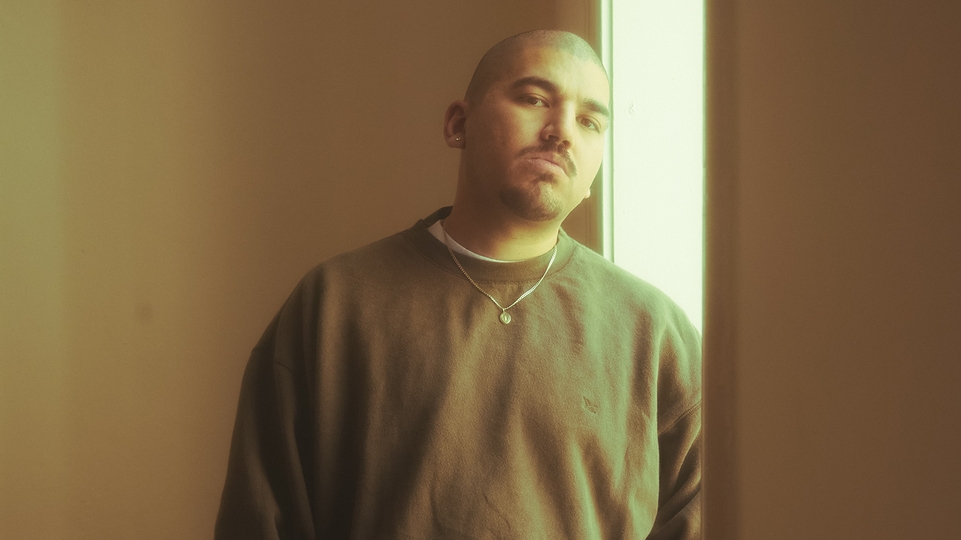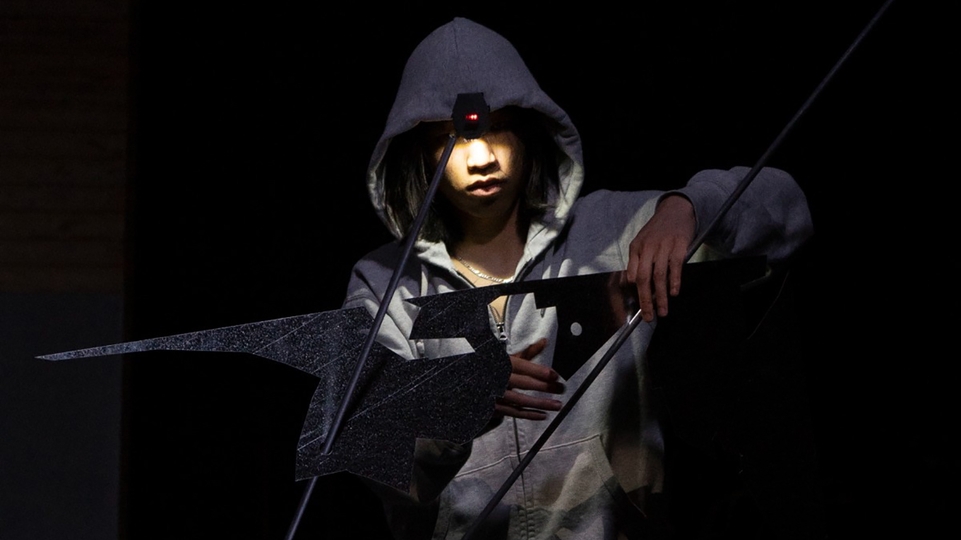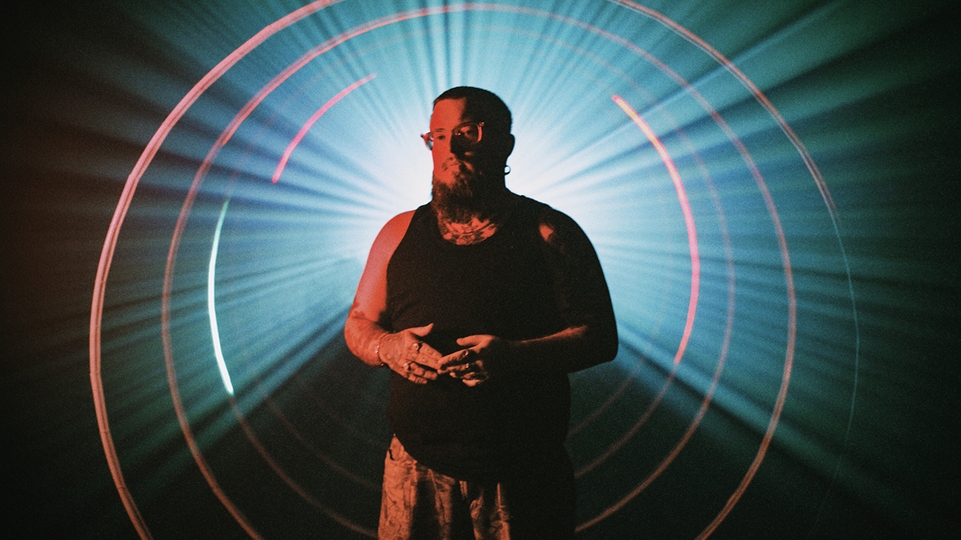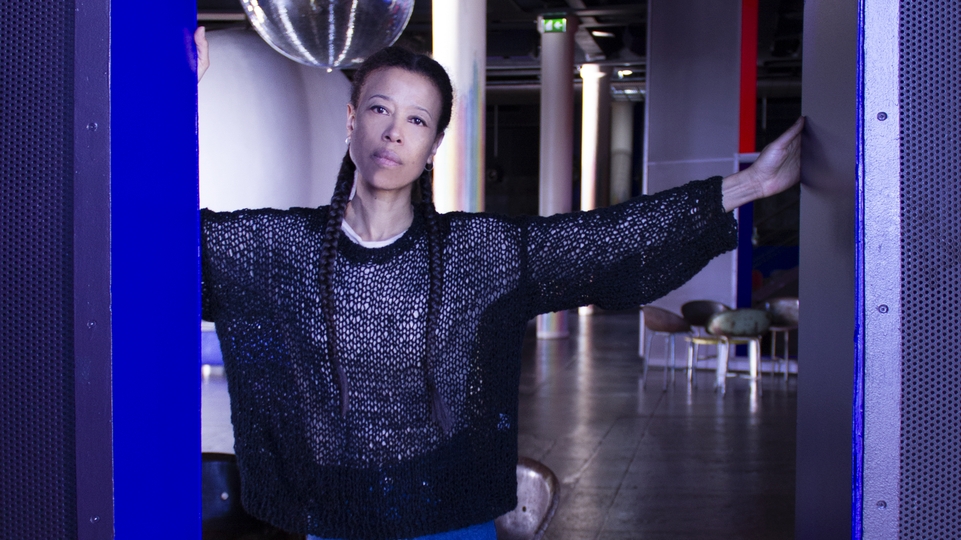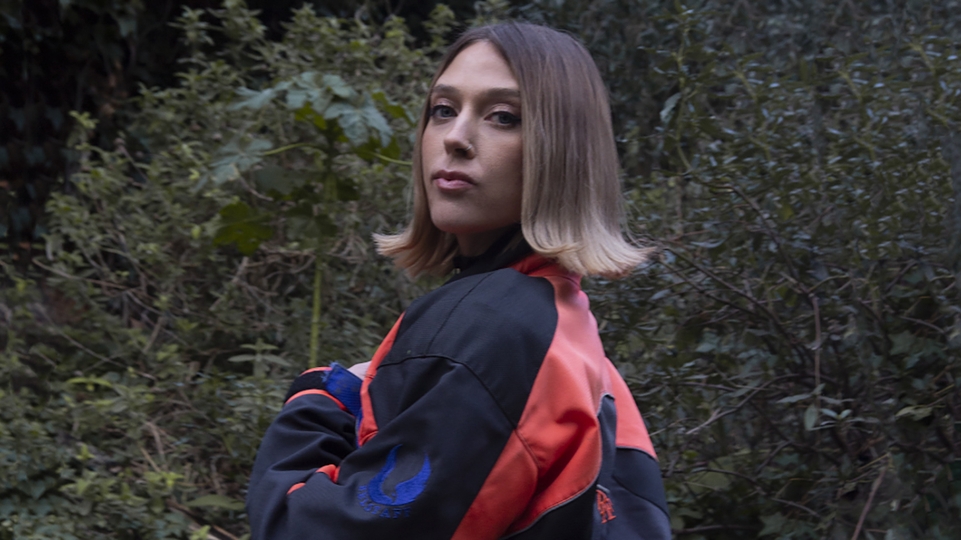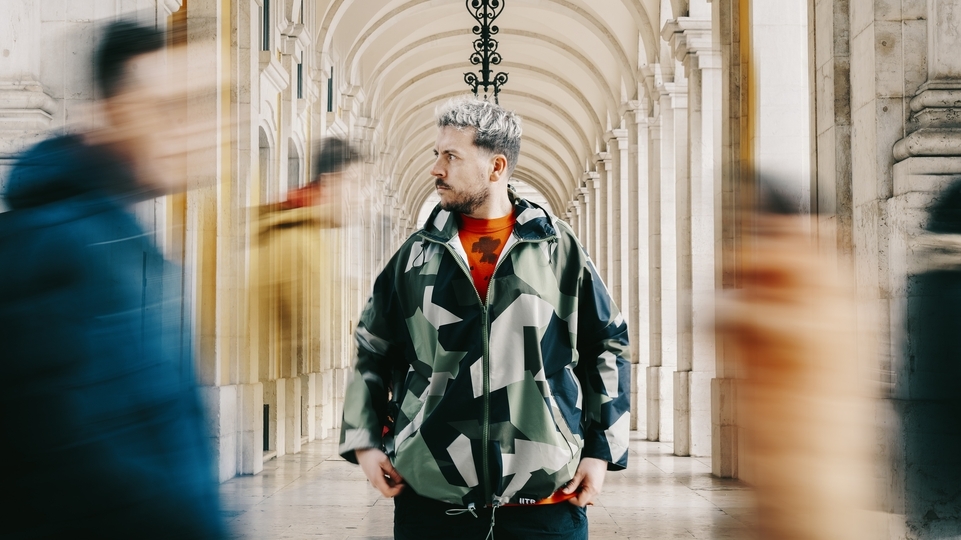
Recognise: DJ Danifox
Lisbon’s DJ Danifox brings a melodic, sometimes melancholic, touch to batida, releasing as a solo artist and as part of the Tia Maria Produções crew via Portugal’s revered Príncipe label. Alongside a Recognise mix of unreleased solo tracks, he speaks to April Clare Welsh about the evolution of his sound
A steep 30-minute hike down a rocky cliff will lead you to the wild beach of Ribeiro do Cavalo in Sesimbra, 40 kilometres south of Lisbon. Nestled in a cove next to a national park, the sea here is calm and clear, protected from the gnarly waves of the Atlantic coast. But to make it down there on foot, you need to be made of pretty strong stuff.
The 2023 track ‘Mar Vista’ (“sea view”) by Lisbon-based DJ and producer DJ Danifox, real name Daniel Veiga, was partly inspired by this Instaworthy “haven”, he tells DJ Mag this on a baking hot May afternoon by the capital’s riverfront. Speculating on the origins of the name Ribeiro do Cavalo (“horse’s brook”), Veiga proposes a mode of access as the most plausible explanation for the beach’s equine connection; a thoughtful inference that briefly teleports the conversation somewhere else. Who doesn’t want to rock up to a beach on horseback?
Daring descents and sandy photo ops aside, ‘Mar Vista’ fittingly takes us inside Veiga’s bluesy batida soundworld. Setting an elegiac tone that’s not so much drenched in sunshine as cold and briny like an ocean dip, the semblance of something lurks beneath while the slow-building track balances a rugged, trotting beat and cut-glass synths with warmer melodic currents. Anchored by plush piano chords and earthy percussion, ‘Mar Vista’ coasts along hypnotically, marking Veiga’s penchant for more relaxed tempos. Alongside standout opener ‘Ilha dos Bruxos’ (“island of wizards”) and the rhythmic hip rolling of ‘Tarraxo 001’, it’s among the many highlights on his gorgeous, unyielding album, ‘Ansiedade’, which fully inducted Veiga into the Príncipe family following his 2022 debut EP for the label, ‘Dia Não Mata Dia’.
Veiga was born in Amadora, a municipality in the northwest of the Lisbon Metropolitan Area, to Angolan parents. He remembers how they would blast out semba while cleaning the house, prime movers like Paulo Flores providing a vibrant, riotous morning soundtrack. Veiga can pinpoint the moment he fell in love with DJing, aged around six or seven at his parents’ wedding. He recalls his uncle playing “cultural stuff, like semba, kizomba, and zouk”, with a tower of CDs on some “long-ass tables”. Even at such a young age, he was transfixed by the process. “I was giving more attention to my uncle DJing than the wedding itself. I just couldn’t understand the transitions and how you manage to move like that from one track to another.”
Following this initial spark of curiosity, he began to develop his own tastes at the age of 11. It was the era of Bluetooth audio sharing, and producers in his area would pass around tracks to their friends, and friends of friends, sometimes leaking music that wasn’t intended to be heard outside of smaller groups. He was listening to a lot of kuduro at the time. The dance music phenomenon originated in Angola during the late ’80s, but evolved in Lisbon in the mid-’00s. The hallmarks of this genre, along with other Angolan styles such as the slower tarraxo and sensual kizomba — reappraised in recent years by Veiga’s “best friend” DJ Lycox — laid the groundwork for his batida concoctions.
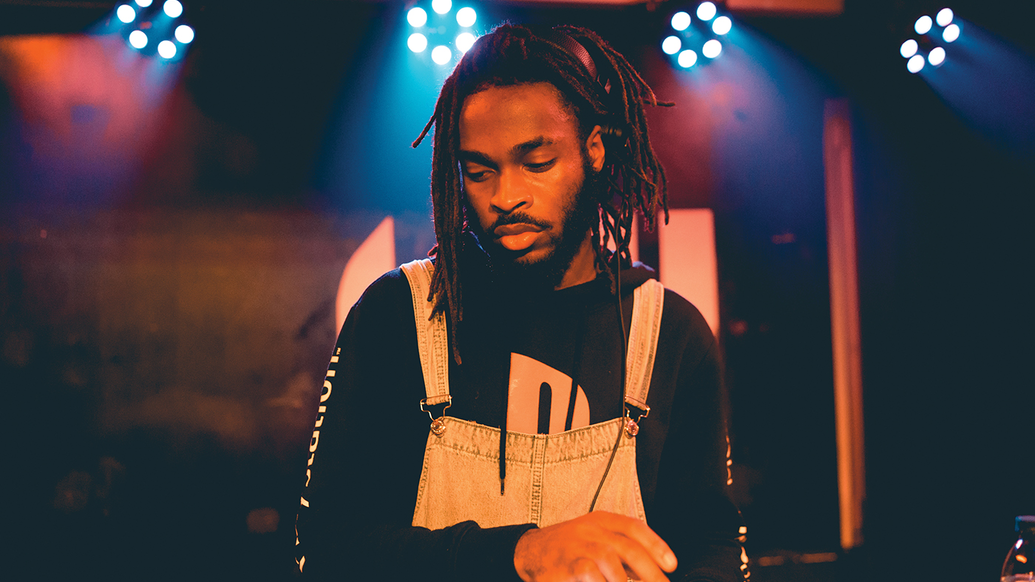
Although the emergence of the Afro-Portuguese batida phenomenon catapulted Veiga towards the music industry, it was a move to the UK that put the final pieces of the puzzle together and spurred him into production. “To get known, I had to go to the UK, just to be where I am,” he says. Prior to this, he had set his sights on becoming a professional footballer, having played in the inter-school league around Lisbon for three years from the age of 15. (He supports FC Porto, in case you were wondering — partly as a rebellious response to his constantly bickering dad and uncle, who support Lisbon teams.) But ultimately, he chose music.
Due to financial pressures, he left Lisbon in 2014 with his mother and brother and relocated to Leeds. Musically, he was able to stretch his legs and he began DJing at bashment parties in the West Yorkshire city, dishing up fiery cuts of reggaeton and slow whine. “Things that don’t make any sense with what I do now,” he offers. However, having already taken his lead from Lisbon major leaguers such as DJ Maboku and DJ Marfox, he had started making beats on FL Studio. According to Veiga, they weren’t yet up to scratch to play out, so he bought himself a Numark controller and learned how to mix “commercial Afro-house stuff” while continuing to expand his toolkit as a producer. “Our genre is way more difficult than a standard beat. The hardest thing is to learn how to make the basic stuff so you can then build on it from there,” he says of his initial foray.
After cutting his teeth on SoundCloud, his first break came in the form of a DJ set for Leeds’ Sable Radio, and he watched as the invites kept on coming. He was now DJing Afro-house at parties, and testing the waters with his own productions. “I started receiving good feedback, which encouraged me to keep going,” he notes. Meanwhile, he had made contact with the Príncipe lot back in Lisbon, via his cousin Deejay Ary, and in 2016 contributed a collaborative track called ‘Dorme Bem’ to the compilation ‘Mambos Levis D'Outro Mundo’.
After spending the next few years hunkered down at the production controls, 2019 saw the release of his debut EP, ‘A Long Walk’, via LA’s Point Records. “I thought it was a scam at first, like why is someone in LA getting in touch? It’s far,” he says. Driven by his own vocals, luminous house-cushioned keys, and his signature patter of hand drums, the EP introduced his vibe to the world. He would go on to join the international Tia Maria Produções crew after returning to Lisbon a few years later, turning in ‘Xupetilson’, the intoxicating opening track on the 2020 ‘Lei Da Tia Maria’ EP. In 2022, he reprised ‘Long Way Talk’ on his aforementioned debut EP for Príncipe, ‘Dia Não Mata Dia’, before tying up the strands of his sound with the arrival of ‘Ansiedade’ last year.
Nowadays, his ideas arrive like waves, comprising busy bursts of activity during which he’ll refine scores of tunes at once. He has carved out a distinctly cool identity in thrall to melody, and sometimes melancholy. “I’m more jazzy and less percussive, depending on what picture I’m trying to make.” For ‘Ansiedade’, he turned to the blues as a reference point, evoking the iconic figure of Robert Johnson on track nine, where he blends MIDI guitar licks and woodwinds into a sunset jam. Bristling with clattering rhythms and twitchy low-bitrate energy, his DJ Mag Recognise mix picks up where the album left off, showcasing his USP for mixing his own unreleased tracks in his sets. “I’ll DJ a track I made like three days ago or sometimes one I’ve literally made 10 minutes before I get to the venue,” he explains.
A few weeks after our conversation, Veiga debuts on Platform 23 at Glastonbury’s legendary Shangri-La, a set he was already gearing up for then, along with the sheer earth-shaking immensity of the festival itself. “I’ve seen the pictures of the grass versus people. Just a lot of heads, not much grass. It’s gonna be insane,” he says. After that, he’ll continue to chip away at his neverending stack of creations to get them “just right”, before putting them out there for his fans to enjoy. For Veiga, the thrill is in the innovation. “I’m just always thinking, ‘What can I do to change this and make it sound new?'”

